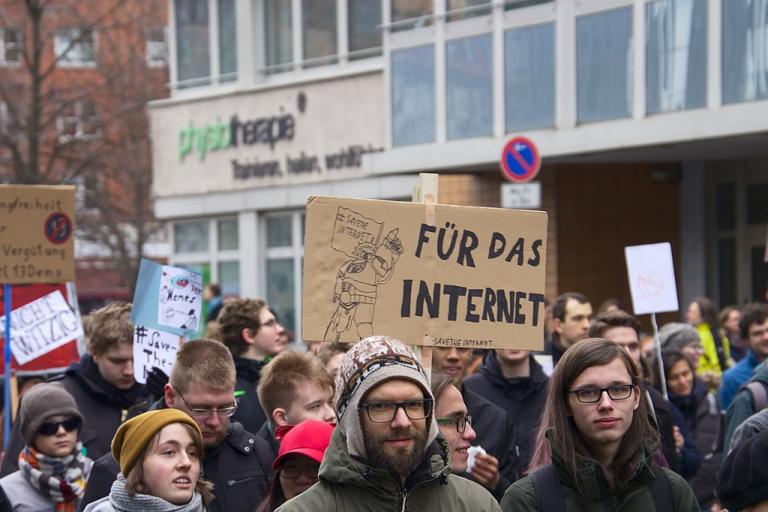The European Union has passed a new copyright law that has the potential to fundamentally change–if not eliminate–the internet as we have known it.
Article 11 of the EU Copyright Directive targets the big news aggregators like Google News and The Drudge Report. It would require them to pay the sources they link to. The law imposes what is being called a “snippet tax” for excerpting copyrighted material and even a “link tax” for linking to it. The fees are not really a tax but a licensing fee. Aggregators would have to pay the publication or website they link to, even though they are bringing them viewers!
Article 13 makes internet platforms liable if any material that violates copyright is posted on them. This will mean that Facebook, YouTube, and other sites will have to devise filters in order to prevent users from posting material unauthorized by the creator.
As so often with government regulation, measures to address genuine problems caused by big offenders end up harming the little guy, hamstringing consumers, and launching a host of other unintended consequences. Including failing to the solve the initial problem.
Requiring money for linking to a site? In practice, that will mean not linking to them at all. How will anyone know about those sites, copyright protected though they be, if no one can link to them? How will that benefit the content creator?
As it is, most newspapers, online sites, and bloggers depend on links from Facebook and other social media to bring them readers. Internet marketing relies on generating links from other sites. People sometimes pay sites to link to their product. Those sites don’t have to pay them. The ultimate goal for the content creator is for their article, post, or video to “go viral,” something that would be impossible if users had to pay for the privilege of linking.
And if a content producer objects to news aggregators or anyone else using their material without paying for it, they don’t need a government to prevent it. All they need to do is set up a paywall, as the New York Times, the Wall Street Journal, and other publications are already doing. Don’t pass a law that thwarts smaller players–whose revenue plans often depend on advertisers who pay for page views–who want sites to link to them.
So farewell to internet marketing, which funds much of the internet and allows it to be offered without charge. We will all need to start paying for what we use. Farewell to social media as we know it. And farewell to blogs. At least my blog.
My Patheos editor, talking me down from the ledge, says that I shouldn’t worry, at least not yet.To be sure, this law only applies to sites originating in Europe, and it won’t go into effect for two years anyway. Perhaps it will only prevent Europeans from participating in the information age. But since this is a “world wide web” and since the major companies being affected (Google, FaceBook, YouTube, etc.) are American corporations, however globalized, who is to say that these new laws won’t have an impact or be emulated in the United States as well, especially in the current climate that is (rightly) critical of these companies.
A “dark day for Internet freedom,” tweeted Julia Reda, a German member of the European Parliament who helped organize opposition to the bill.
Photo: rally against the EU Copyright Directive on in Berlin by Gero Nagel [CC BY 4.0 (https://creativecommons.org/licenses/by/4.0)]














